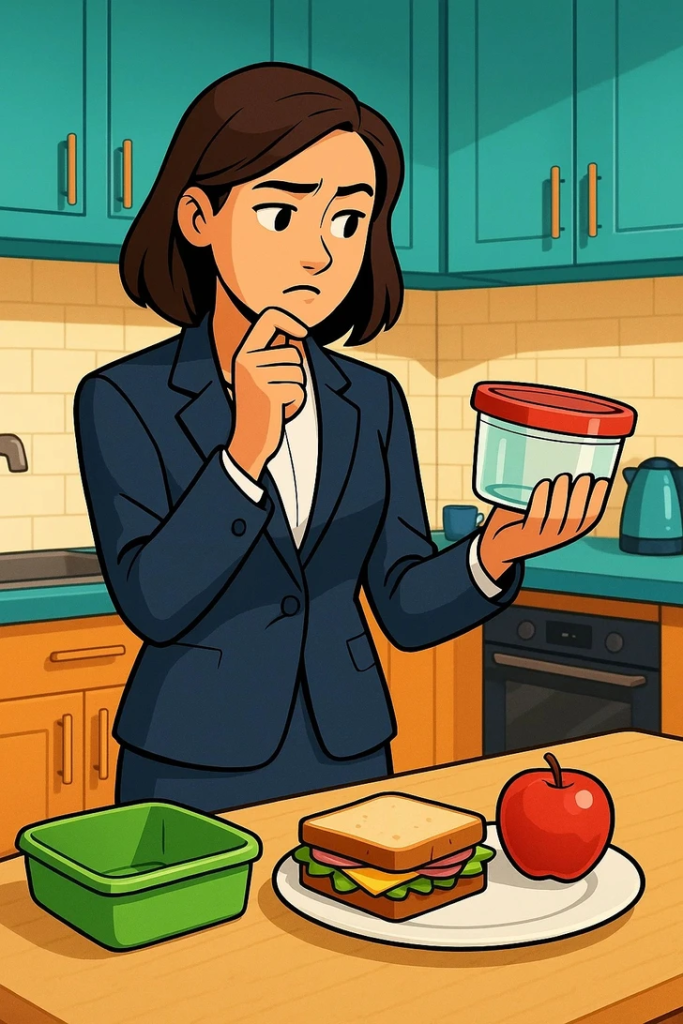We all think we know how to run a household. Brush your teeth, toss out the trash, fold the laundry—how hard can it be? But let’s be real: these seemingly simple tasks can trigger full-blown debates between roommates, spouses, and even entire families. So we dug deep, talked to experts—yes, the ones in white coats—and finally settled 15 of the most heated household questions.
1. Should You Leave the Trash Overnight or Take It Out?

Some say, “No smell, no problem.” Others treat it like radioactive waste and run it out before sundown. Here’s the deal: if your trash has organic matter—like food scraps—it should be tossed out daily. Even if there’s a lid, the bacteria will multiply, and you’ll be hosting a fly convention by morning. But dry stuff? Paper, packaging, and clean plastics can hang out a bit longer.
Video: CLEAN WITH ME 2019 | Cleaning Challenge!
2. Can You Wash Underwear and Jeans Together?

Some folks toss everything in one load—underwear, jeans, dish towels—because “it’s all laundry, right?” Wrong. Underwear touches sensitive areas and needs gentle cycles or hot water, depending on the fabric. Jeans, on the other hand, are tough, heavy, and can twist lace or delicate items into shredded messes. Bottom line? Wash them separately to keep both clean and intact.
3. Toothbrush Before or After Breakfast?

Ah yes, the morning debate: brush before that first bite or wait until after? Experts say brush first. Overnight bacteria buildup can go straight into your system with that orange juice. Plus, acidic breakfasts soften enamel, making post-meal brushing a one-way ticket to tooth damage. So get brushing before your bagel.
4. Charging Your Phone Next to You While Sleeping: Smart or Risky?

Leaving your phone charging on your bed might be convenient, but it’s not exactly safe. Here’s the science: non-original cables or older phones can overheat, and if tucked under a pillow—hello, fire hazard. Keep it on a hard surface, away from your head, and unplug once fully charged.
Video: Stop Charging Your Phone at Night, Here’s Why
5. Shower in the Morning or at Night?

Morning people say it wakes them up. Night owls argue you’re just dragging the day’s grime into bed. Dermatologists vote evening. Washing off allergens, sweat, and city pollution helps prevent skin issues—and you’ll sleep better too. But if you sweat overnight, a quick morning rinse doesn’t hurt.
6. Plastic vs. Glass Food Containers

Plastic fans love how light and durable their containers are. But glass lovers argue they’re safer. Turns out, glass wins. It doesn’t leach chemicals when heated, doesn’t absorb odors, and handles microwaves like a champ. Plastic might be fine for dry snacks or cold storage, but for anything hot, oily, or acidic—glass is the better choice.
7. How Often Should You Wash Jeans?

Some say every week. Others wash theirs once a season. Experts recommend after 5 to 10 wears—unless they’re visibly dirty. Too much washing ruins the color and shape. Try airing them out between wears and always wash them inside out on cold.
8. What’s the Ideal Bedroom Temperature?

If you sleep like a popsicle or roast under three blankets, this one’s for you. Science says 60 to 66°F is ideal. It helps your body cool down and get into deep sleep mode. Anything colder, though, and your breathing and circulation could take a hit. So crack a window—but maybe skip the arctic blast.
9. Should You Wear New Clothes Without Washing Them First?

They look clean, right? Still, you probably shouldn’t skip the first wash. New clothes can have residue from dyes, antimicrobial agents, or even bacteria from people who tried them on. Wash anything that touches your skin directly—like shirts, dresses, and underwear—before wearing.
10. Toilet Paper: Over or Under?

This seemingly innocent choice is surprisingly divisive. But if you care about hygiene and ease of use, over is the way to go. That’s even how the original toilet paper patent shows it. It keeps the paper away from the wall and is easier to grab—especially important in public bathrooms or when you’ve only got one hand free.
11. Dusting: Dry Cloth or Wet?

Dry cloths are quick, but they often spread dust into the air. Wet cloths, on the other hand, trap the dust and wipe it away. Experts say use damp cloths for most surfaces and stick to dry microfiber on electronics or delicate wood.
12. Using the Same Towel for Face and Body

It might seem harmless, but your face has more sensitive skin—and your body deals with sweat and bacteria. Using one towel for both can transfer germs and lead to breakouts. Dermatologists recommend using a soft, separate towel for your face and changing it every couple of days.
13. Should You Disinfect the Dish Sponge Daily?

You bet. That sponge might look innocent, but it’s one of the dirtiest things in your kitchen. Especially if it’s touched raw meat. Pop it in the microwave for a minute, run it through the dishwasher, or soak in a mild bleach solution. Do this daily, and replace it every week.
14. When to Replace a Toothbrush?

If it still looks good, it’s still good, right? Not really. After 3 months of regular use, even a nice-looking toothbrush isn’t doing its job properly. The bristles lose their stiffness, and bacteria love to linger. If you’ve been sick, replace it immediately.
15. How Long Can You Keep Cooked Food in the Fridge?

Your leftovers might look okay on day five, but bacteria don’t always smell bad. Experts say 3 to 4 days max. And always refrigerate food within two hours of cooking—sooner if it’s hot out.
Final Thoughts
These everyday dilemmas might seem petty, but they stir up some serious household drama. The good news? Most of them have clear answers backed by science. From the best time to brush your teeth to whether you should nuke your sponge daily, these expert-backed tips can bring peace to even the most divided kitchens, bathrooms, and bedrooms. So next time someone picks a fight over toilet paper direction or when to shower, hit them with the facts. You’ve got backup now.